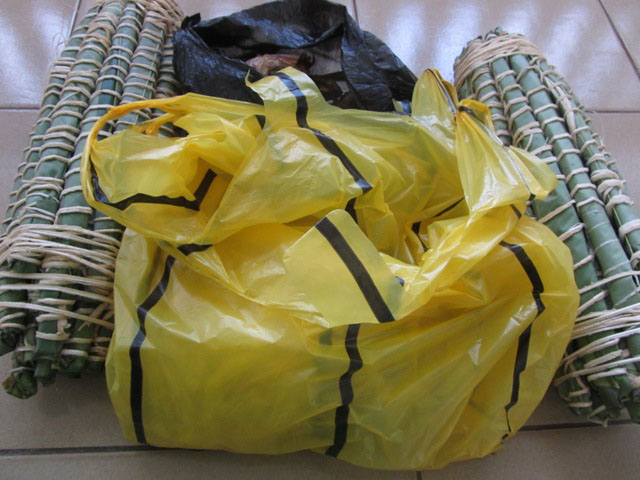After clarifying, specifying and giving clear orders to be respected through a joint order of the Ministry of the Environment, Nature Protection and Sustainable Development and the Ministry of Commerce on the regulation of manufacturing, import and of the marketing of non-biodegradable plastic packaging dating from October 24, 2012, a circular note 18 months later on April 10, 2014 in accordance with the requirements of the 2012 decree was made public or brought to the attention of public opinion and administrative authorities in order to launch the process of extinguishing a social problem whose scale in the daily lives of Cameroonians is increasingly catastrophic.
More than ten years after the launch of this muscular operation which still has the objective in addition to the ban among other things of non-biodegradable plastic packaging less than 60 microns, to make it disappear from the Cameroonian landscape, old habits persist thanks in particular to illicit marketing networks called black markets.
Firm commitments to eradicate a problem that persists
The deployment of operational teams on the ground since April 2014 has made it possible to make significant seizures which, far from having stopped the phenomenon, have weakened it somewhat because although these non-biodegradable plastic packaging continue to appear in the markets and sometimes being sold by itinerant traders in the streets, the bans and sanctions imposed on these products are known to all. No one can say that they are unaware that the marketing of non-biodegradable plastic packaging is prohibited. Even if we are more busy making money, we are still aware of being illegal. The fact of not having been personally arrested as a street vendor does not mean that one is authorized to market them. Indeed, accustomed to poorly ordered, unsanitary, deplorable activities and impunity, a good majority of Cameroonians were surprised by these measures of 2012 and 2014. Some were wondering what alternative was provided to replace these products because they are used to using them daily. Others, knowing what is recommended, were worried about the price which, according to them, was exorbitant, not accessible to all social strata, and even unsuitable because according to them, not everything can for example be packaged in packaging in papers. These normal points of view stemming from a desire not to break with old and bad habits already denoted an ignorance of the environmental damage caused by these products.
Plastic industry operators denounced the haste of this measure. We wonder what good ten additional years of patience would have brought about in the daily environment of Cameroonians? Although we should not, however, neglect the fact that this measure disrupts a sector of activity itself threatened with extinction at this precise period, it was still necessary to take into account the environmental issues of additional patience in an environment where habits are stubborn and sometimes blatantly insolent or disrespectful.
As a good professional, you must certainly defend your activity based on significant remarkable points, but you must also take into account the negative impact of this activity on the environment. The government has a duty to protect Cameroonian companies while taking into account the efforts to be made on the environmental level because professional operators of the plastics industry specified that Cameroon is a country that imports plastic products and that stopping certain imports would have the effect of consequences on income in terms of taxes and customs without forgetting to note the job losses in an environment where precarious and indecent jobs number in the millions.
But as the reasons given to defend a cause cannot always be enough to take precedence over a set of other priorities, environmental issues are more important. Non-biodegradable plastic packaging as well as waste of the same name obscures drains, contributes to flooding, the proliferation of water-borne diseases, and the development of asphyxiating and deadly odours sometimes resulting from incinerations that do not respect any ecological standards. In addition, non-biodegradable plastic packaging increases unsanitary conditions and urban disorder. They transit from one point to another under the influence of wind and rainwater to end up anywhere except where they should be, that is to say, in trash cans and incinerators. Arbitrary deposits of plastic waste continue to create artificial reliefs and remain in nature unnecessarily. Even more serious according to experts, nanoplastics (small plastic particles) and plastics can have harmful effects on the quality of soils. They can prevent plant growth by blocking the circulation of water and nutrients to the roots, contain toxic substances that can be absorbed by plants and harm human health, lead to the accumulation of heavy metals which affect crop quality.

